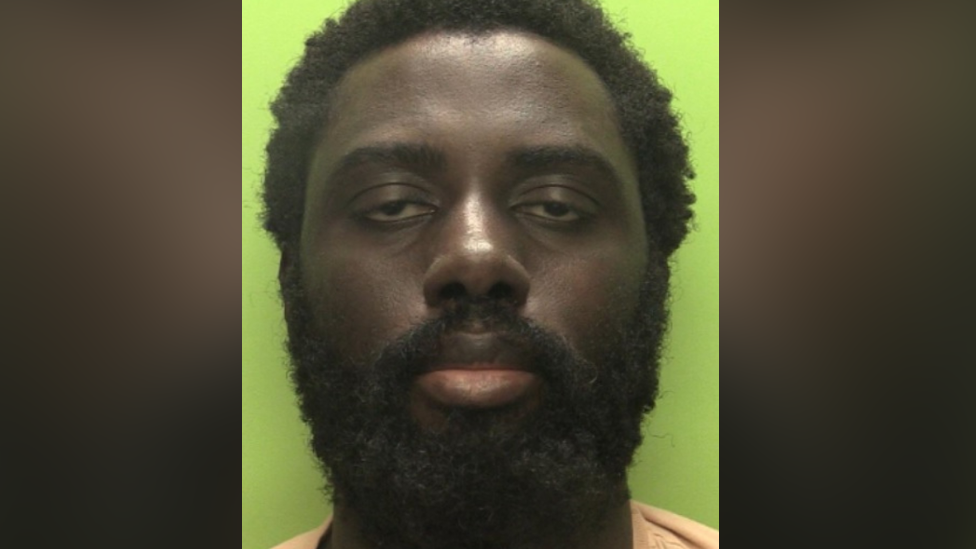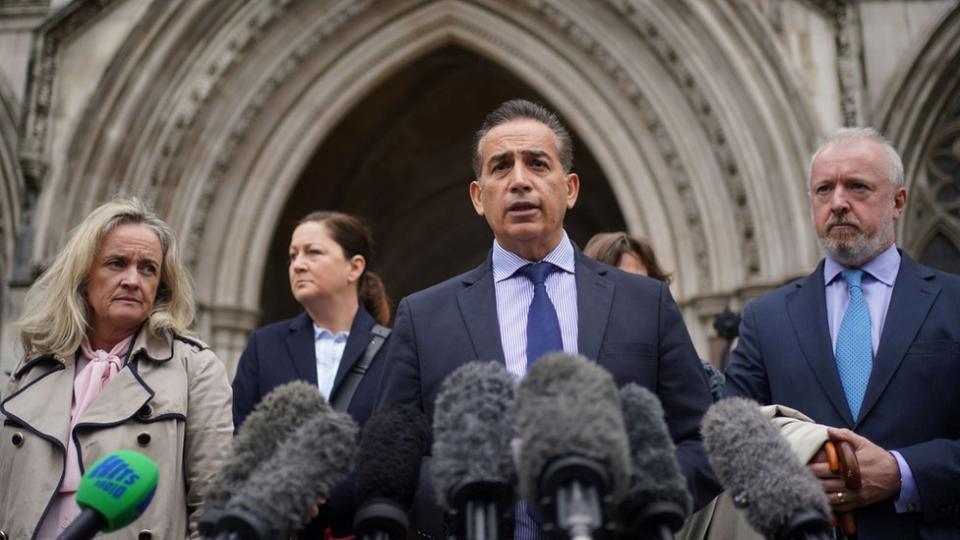Nottingham attacks: Triple killer's sentence not unduly lenient - judges

The sentence of a man who stabbed three people to death in Nottingham was not unduly lenient, judges have ruled.
Valdo Calocane killed Barnaby Webber and Grace O'Malley-Kumar, both 19, and 65-year-old Ian Coates on 13 June 2023.
He was given an indefinite hospital order after prosecutors accepted a plea of manslaughter on the grounds of diminished responsibility.
Mr Webber's mother, Emma Webber, said the Court of Appeal ruling came as "no surprise" to the victims' families.
The attorney general referred the sentence in February, arguing it was unduly lenient.

Speaking at the hearing on Tuesday, Lady Chief Justice Baroness Carr concluded there was "no error" in the approach taken by Mr Justice Turner at Nottingham Crown Court in January.
She said Calocane was in the "grips of a severe psychotic episode" at the time.
Mr Justice Turner came to the "reasonable conclusion" that the aim of protecting the public would be best served by a hospital order, she added.
In a statement following the hearing, Mrs Webber said the ruling illustrated the need for "urgent reforms" in UK homicide law.
"Despite the fact that the attorney general herself feels that Valdo Calocane did not receive the appropriate sentence, today's outcome proves how utterly flawed and under-resourced the criminal justice system in the UK is," she said.
"So far, there have been no less than eight individual reports, reviews and investigations.
"We do not believe that there is any chance these can be cohesive enough to ensure a full and detailed outcome, and therefore call for a public inquiry."
Dr Sanjoy Kumar, father of Ms O'Malley-Kumar, said the attacks were "entirely preventable".
"It is the missed multiple opportunities to prevent the Nottingham attacks and the murder of our children and Ian Coates, is what has led us here today," he said.
"We will continue to pursue agencies that failed us and hold them responsible for the Nottingham attacks so that no other family is made to suffer like ours."
Calocane, 32, had been diagnosed with paranoid schizophrenia before the attacks.
In addition to killing Mr Webber, Ms O'Malley-Kumar and Mr Coates, Calocane stole Mr Coates's van and used it to drive at three pedestrians, who were all left seriously injured.
The sentence review was held by the Lady Chief Justice of England and Wales, Lord Justice Edis and Mr Justice Garnham.
Analysis
By Dominic Casciani, BBC News home and legal correspondent
In short, the Court of Appeal said there was no legal reason why they should interfere with the sentence that the trial judge in Nottingham handed down to Valdo Calocane in January.
It's very difficult for a sentence in the criminal court to be overturned by the Court of Appeal.
It's not just a simple case of the judges having a look at the evidence for themselves and coming to a different conclusion.
The court has to be satisfied that the judge fell into "gross error" - that somehow the judge completely missed something that was critical in the case.
During the short ruling this morning, Baroness Carr made very clear that when the trial judge looked at the evidence of what happened on that appalling day last June, that there was no dispute that Calocane was in the midst of an acute episode of psychosis.
In summing up their conclusion, Baroness Carr said: "Had the offender not suffered the mental condition that he did, the sentencing judge would doubtless have been considering a whole-life term.
"But neither the judge nor this court can ignore the medical evidence as to the offender's condition which led to these dreadful events or the threat to public safety which the offender continues to pose."
During the hearing, Calocane watched on from a unit in Ashworth High Secure Hospital.
He did not respond when asked to confirm he could hear the ruling - but a member of hospital staff indicated that the judgement could be heard via the video link.

Deanna Heer KC, representing the attorney general's office, had previously argued Calocane should have received a hospital and limitation direction, through which he would be treated in hospital before being transferred to prison.
While not criticising the approach of the original sentencing judge, she said psychiatrists who gave evidence to the court had not commented on the need for custodial action.
Peter Joyce KC, representing Calocane, agreed the offender is "likely to spend the remainder of his days" in a hospital, but said it would be "wrong" if he was "to be punished for being mentally ill".
"He is never likely to see the light of day again," he said.
Since the attacks, a government-ordered rapid review into Nottinghamshire Healthcare NHS Foundation Trust has been launched, as well as Independent Office for Police Conduct (IOPC) reviews into both Nottinghamshire Police and Leicestershire Police, and a wider NHS England review.
A review also found that prosecutors were right to accept Calocane's manslaughter pleas, but said the case could have been handled better.
Prime Minister Rishi Sunak has met the victims' families, but has not yet committed to a public inquiry into the case.
Follow BBC Nottingham on Facebook, on X, or on Instagram. Send your story ideas to eastmidsnews@bbc.co.uk or via WhatsApp on 0808 100 2210.

